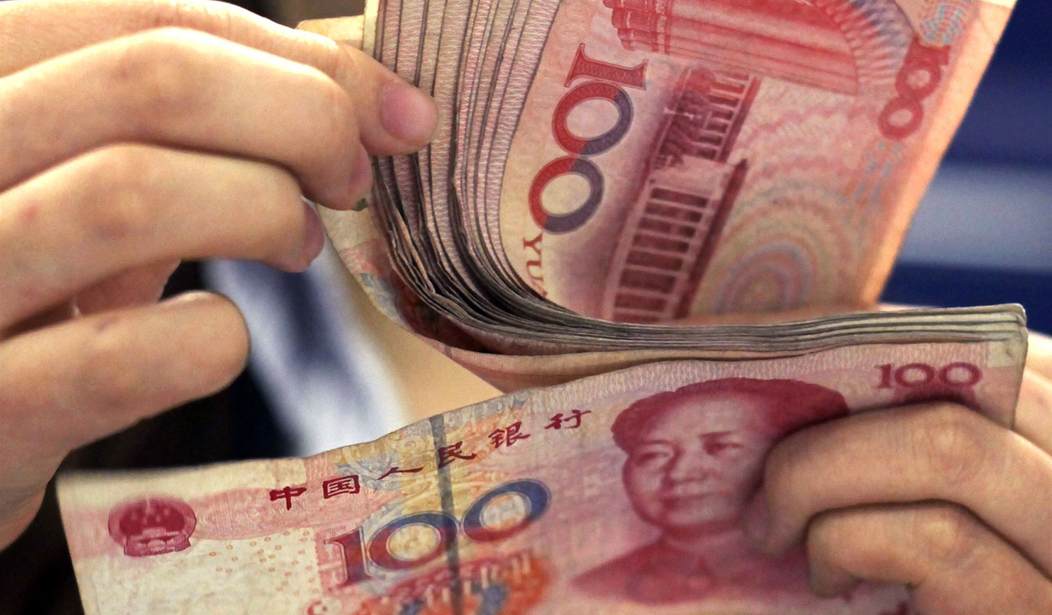Top News
China is Censoring Bad News About Its Economy

The news coming out of China’s economy continues to be a very mixed bag. Officially the country met its 5% growth target last year, but Evergrande is on the verge of liquidation, the stock market is down, foreign investment is down and the PMI numbers for January also show factory activity is still contracting.
China’s manufacturing activity contracted for the fourth straight month in January, an official factory survey showed on Wednesday, suggesting the sprawling sector was struggling to regain momentum at the start of 2024.
The official purchasing managers’ index (PMI) rose to 49.2 in January from 49.0 in December, below the 50-mark separating growth from contraction and was in line with a median forecast of 49.2 in a Reuters poll.
So what do you do if you’re a one-party state and the news has a negative edge? You censor it of course. That’s precisely what China has been doing.
In a series of posts on its official WeChat account, the Ministry of State Security implored citizens to grasp President Xi Jinping’s economic vision and not be swayed by those who sought to “denigrate China’s economy” through “false narratives.” To combat this risk, the ministry said, security agencies will focus on “strengthening economic propaganda and public opinion guidance.”…
Over the last year, China has targeted consulting and advisory firms with foreign ties through raids, detainments and arrests. These firms, which helped businesses assess investments in the country, have become collateral damage in Mr. Xi’s drive to bolster national security. Such efforts to curb the flow of information, curtail the release of unfavorable economic data and limit critical financial discourse seem to only deepen the concerns of investors and foreign businesses about the true state of China’s economy.
“In my view, the more the government suppresses negative information about the economy, the less confidence people have in the actual economic situation,” said Xiao Qiang, a research scientist at the School of Information at the University of California, Berkeley.
That may be true but clearly the censors in China don’t believe it. In the last few months, anything which puts China’s economy in a bad light has simply disappeared:
One recent commentary that disappeared was an editorial published last month by Caixin Media, a Beijing-based business news outlet known for backing pro-market reforms. The editorial called for officials to confront economic challenges directly, harking back to when China’s economy was on the brink of collapse during the Cultural Revolution of the 1960s and 1970s. The editorial said that, at the time, officials insisted that “the situation is excellent,” but in reality people were destitute…
That same day, Li Xunlei, an economist at state-owned Zhongtai Securities, warned in a column published on Chinese news outlet Yicai that insufficient household consumption would persist unless China’s leadership took steps to help lower-income families. Li also highlighted a study conducted by Beijing Normal University showing that some 964 million Chinese people, representing roughly 70% of the population, were living on a monthly income of less than 2,000 yuan, equivalent to about $280.
That data point quickly went viral on Weibo before it disappeared from the Chinese microblogging platform’s official list of trending topics. Before long, Li’s column vanished from Yicai’s website too. It has also become inaccessible on Li’s public account on Chinese messaging platform WeChat, where a message read: “The content can’t be viewed due to violation of regulations.”
Liu Jipeng, the dean of a university in Beijing, gave an interview last month in which he suggested investor should steer clear of Chinese stocks. His social media accounts were subsequently frozen from accepting new followers and he announced he had stepped down from his position at the university. Foreign economist aren’t as easy to control but China is warning them.
One economist at a foreign securities firm said a Chinese government official had recently asked the economist to be “more thoughtful” when writing research reports, especially if the content may be construed negatively. The economist asked not to be identified for fear of reprisal.
The Times story ends by noting that one of China’s most reliable mouthpieces, Hu Xijin, who for a long time was the chief editorial writer for one of China’s leading nationalist papers, recently chastised the government on his own Weibo account. He said the government should accept help from people trying to address real problems “rather than actively covering them up and creating public opinion that is not real.”
It’s hard to put something like that in perspective if you’re not familiar with Hu Xijin. It’s the equivalent of having MSNBC’s Rachel Maddow announce she was wrong about Donald Trump’s connections to Russia and people need to tone it down or like having Ben Shapiro announce that facts really do care about your feelings. Hu Xijin is literally the last person on earth you’d expect to criticize the Chinese government for censorship. It must be really bad for him to be speaking up.
Read the full article here

-
Uncategorized6 days ago
The Surge of Crypto Slots: A New Period in Online Pc Gaming
-
Uncategorized6 days ago
Kəşf Etmək Binance Coin Kazino Saytları Dünyasını
-
Uncategorized6 days ago
The Increase of Dogecoin Casino Sites: An Extensive Introduction
-
Uncategorized6 days ago
High Roller Online Casinos: Inside the Globe of Elite Betting
-
Uncategorized2 days ago
The Comprehensive Overview to Tutoring Networks







